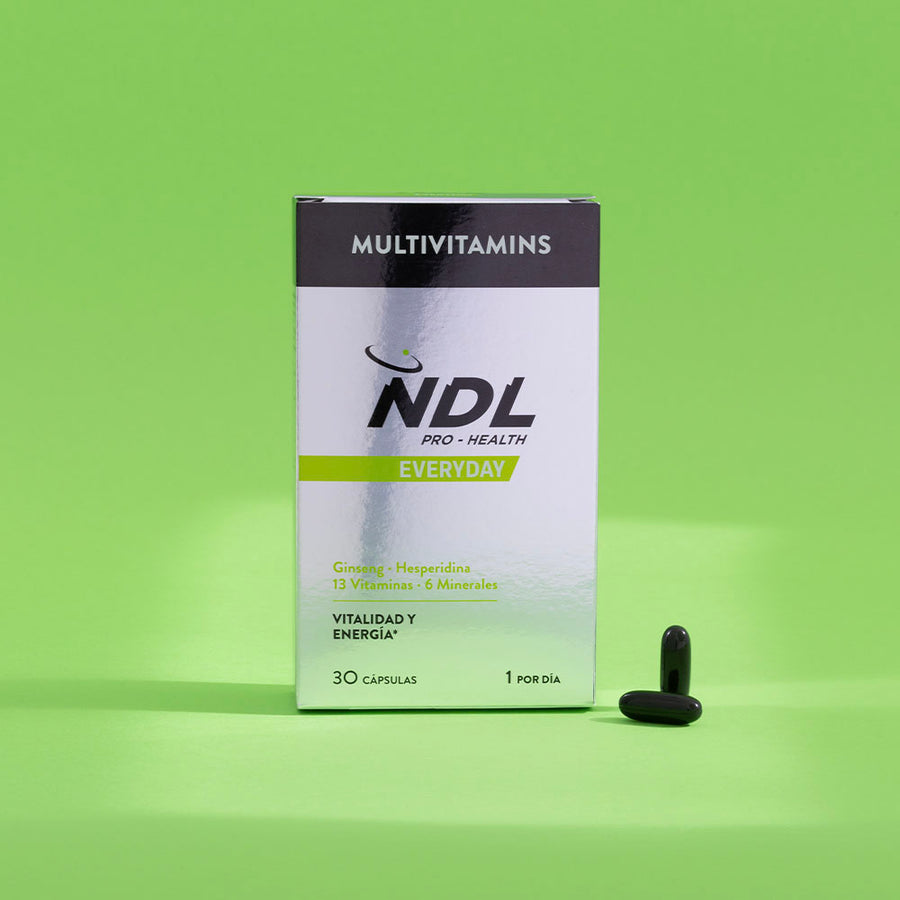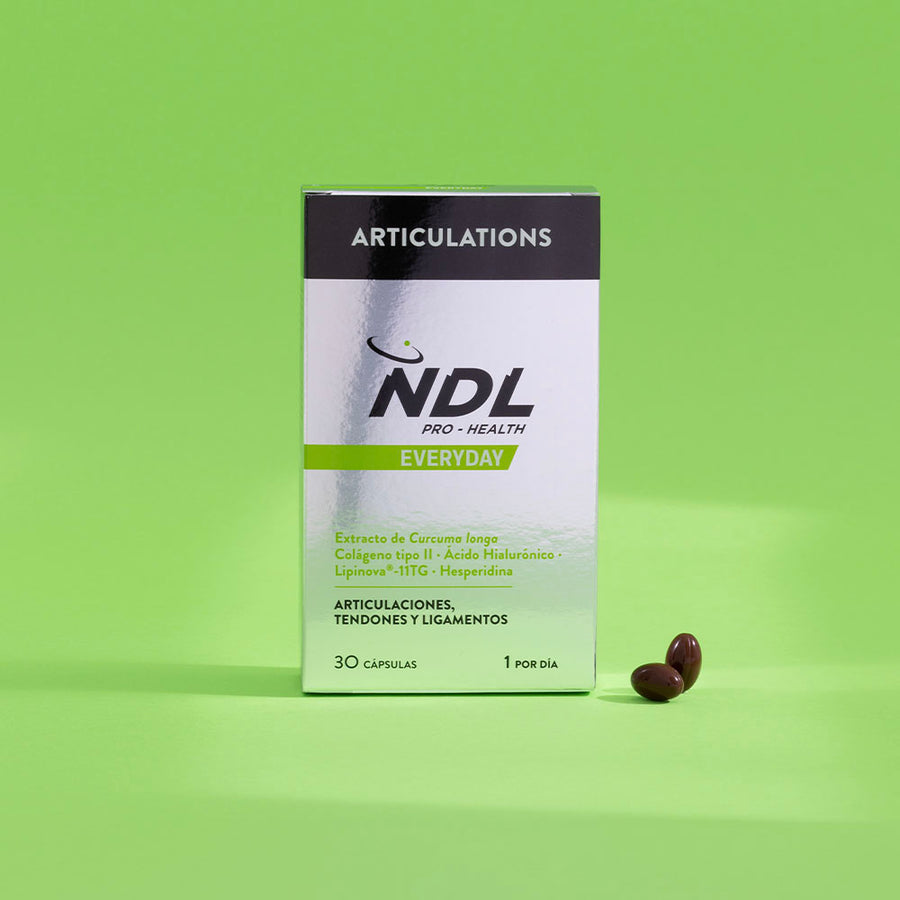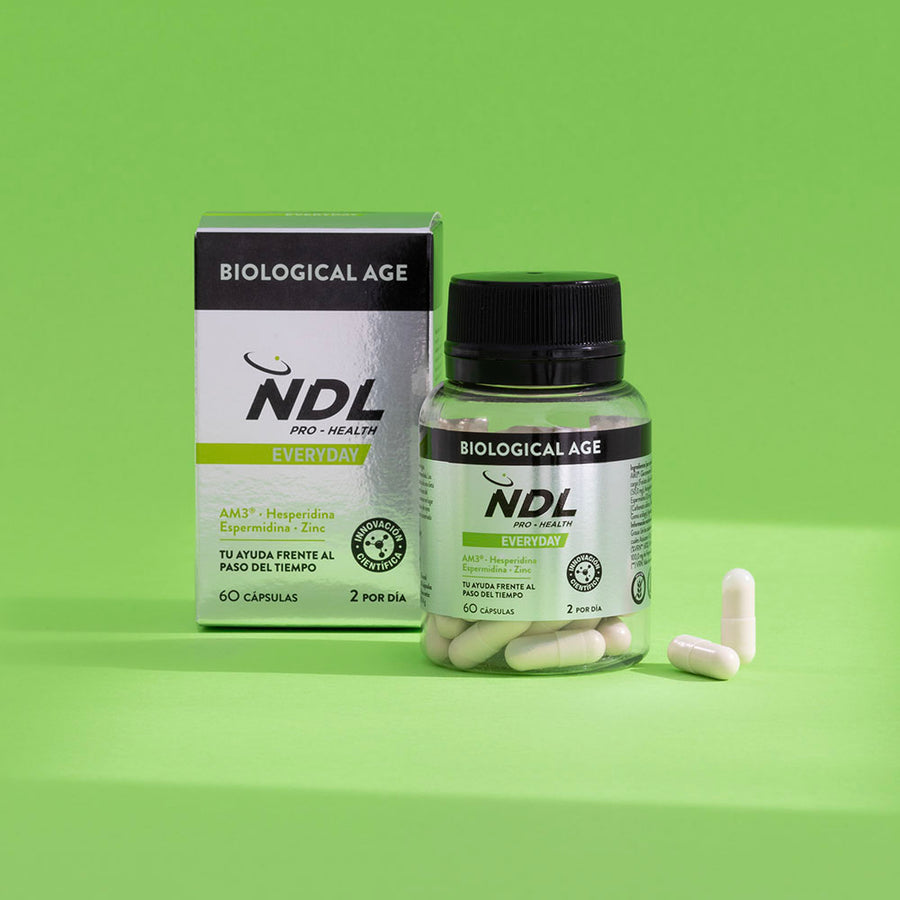Featured Products
In the field of health and sports performance, nutrition plays a fundamental role. In addition to a balanced diet, mineral and multivitamin supplementation, along with other nutrients and ergogenic substances, has become a very useful tool to optimize sports performance and health.
What is a multivitamin?
Multivitamin complexes are nutritional supplements legally referred to as “food supplements,” whose composition highlights a combination of vitamins and minerals essential for the optimal functioning of the body.
They are designed to complement the regular diet and ensure that the body receives the necessary nutrients to carry out different physiological functions.
Health benefits of multivitamins
In addition to ensuring an optimal state of health, adequate levels of vitamins and minerals have a direct impact on optimizing sports performance. Multivitamin complexes can contribute to this under certain circumstances, offering a balanced combination of essential nutrients.
Other non-nutritional substances that may accompany vitamins and minerals in multivitamins can also be beneficial in terms of optimizing the body's energy resources and muscle recovery after exertion. These include ginseng and hesperidin.
Improved energy and physical and mental endurance
An adequate intake of B-complex vitamins and minerals such as iodine, magnesium, and manganese is essential for energy metabolism and cellular-level energy synthesis.
Other substances that can contribute to optimized energy in sports performance and delay the onset of fatigue include plant extracts such as ginseng.

Strengthening the immune system
Physical stress associated with intense training can compromise athletes’ immune systems.
Supplementation with vitamin C, vitamin B9, and zinc has been shown to be effective in reducing the incidence of respiratory infections in people who play sports.
Optimization of iron metabolism
Iron contributes to normal energy metabolism and also plays a key role in oxygen transport in the body, helping to reduce tiredness and fatigue.
Iron deficiency is common in athletes, which can negatively affect oxygen transport capacity and sports performance. Multiple studies support iron supplementation to improve endurance in sports practice.
Muscle function and recovery
Vitamin D contributes to the maintenance of normal muscle function in the context of intense physical exercise.
Other important vitamins in protecting cells against oxidative stress and reducing tiredness and fatigue include vitamins B2, B3, and antioxidant vitamins, such as vitamin C, vitamin E, and beta-carotene (plant precursors of vitamin A), along with minerals such as selenium.
Finally, hesperidin, a flavonoid present in high concentrations in citrus fruits, with antioxidant and anti-inflammatory properties, has shown positive effects on muscle recovery after intense training.
Optimization of cognitive performance
Nutrients in multivitamin complexes such as folic acid and vitamin D may contribute to a healthy central nervous system, supporting the optimization of cognitive function.
Effects on bone health
Multivitamins with vitamin D and calcium, among other nutrients, can improve bone health, which is essential for athletes engaged in high-intensity training.
What types of multivitamins exist?
The best multivitamin is the one that has characteristics adapted to the specific needs of each individual, whether they are an elite athlete or someone committed to an active lifestyle.
Thus, the choice of the recommended multivitamin should be based on individual factors and specific goals.
Some of the multivitamin complexes available include:
General multivitamins
They contain a wide range of essential vitamins and minerals to maintain overall health.
They are designed to cover daily nutritional needs and are ideal for those looking for a comprehensive supplement that covers the requirements of most vitamins and minerals.
Multivitamins specifically for athletes
These are multivitamins that especially include nutrients such as zinc, magnesium, and B-complex vitamins to support muscle recovery and physical endurance.
Multivitamins for energy and physical performance
They may contain additional ingredients such as ginseng, hesperidin, or coenzyme Q10 and other plant extracts related to better energy utilization and improved physical performance.
Antioxidant multivitamins
They are specifically focused on providing vitamins and minerals with antioxidant capacity or function. They may also include other substances, such as polyphenols, with antioxidant properties that can help reduce oxidative stress generated during intense exercise, supporting recovery and minimizing the risk of injuries.
When should you take a multivitamin?
It is advisable to take a multivitamin or nutritional supplement when the diet cannot provide all the nutrients in the amounts required by the body.
For athletes, the type of sport practiced, as well as its duration and intensity, determines the type of diet required, as this will dictate greater or lesser nutrient requirements.
Although the diet should provide as many nutrients as possible, multivitamins should be used when any of the following situations occur:
- Athletes who, due to the characteristics and demands of their sport, need to consume a daily amount of calories and nutrients that would be difficult to obtain solely through food.
- Athletes who, at a certain point in their season, drastically increase their training and preparation, and therefore need to add supplements to their daily diet.
Dosage and usage recommendations for multivitamins
Multivitamin complexes should not be used to replace a varied and balanced diet or a healthy lifestyle.
In addition, the expressly recommended daily doses of each nutrient should not be exceeded.
Regarding the timing and conditions of multivitamin intake, taking them with meals may contribute to better absorption of certain nutrients, such as fat-soluble vitamins (A, D, E, and K).
On the other hand, some studies suggest that intake after exercise may optimally support muscle repair and protein synthesis.
What happens if I take supplements on my own?
While multivitamins can be beneficial in addressing nutritional deficiencies in the diet, certain precautions must be observed to avoid possible adverse effects.
Individualized supplementation, attention to the recommended dose, and, if necessary, consultation with a health professional can help ensure the safety and effectiveness of multivitamin intake.
In this regard, some issues to consider are:
- Excess of certain nutrients can have negative effects on health.
- Some components of multivitamins may interact with certain medications.
- Some conditions that affect nutrient absorption, such as gastrointestinal diseases, may reduce the effectiveness of multivitamins.
Possible adverse effects
Some of the adverse effects that may appear with multivitamin intake include:
- Toxicity from fat-soluble vitamins. Vitamins A, D, E, and K can accumulate in the body and cause toxicity if consumed in excess over a long period.
- Gastrointestinal symptoms. Some people may experience stomach discomfort or gastrointestinal issues when taking multivitamins.
- Hypervitaminosis. Excessive vitamin levels in the body can pose health risks.
Recommendations when buying multivitamins
It is important to reiterate that multivitamins should not replace a balanced and varied diet, but rather complement it to ensure an optimal intake of nutrients.
It is always advisable to consult a health professional or nutritionist to determine the best option according to individual needs.
Among the recommended multivitamins, NDL Pro-Health Multivitamins stand out as a source of 13 vitamins and 6 minerals that help reduce tiredness and fatigue, thanks to their content of vitamins C, B2, B5, B6, and B12 and minerals such as magnesium and iron. In addition, they contain ginseng and hesperidin.
Sources
- 5 questions to ask yourself before taking a food supplement. [Internet]. Accessed: 12/02/2024.
- Palacios N, et al. Nutritional supplements for athletes. Ergogenic aids in sport - 2019. Consensus document of the Spanish Society of Sports Medicine. Arch Med Deporte 2019; 36(Suppl. 1): 7-83.
- Wardenaar F et al. Micronutrient Intakes in 553 Dutch Elite and Sub-Elite Athletes: Prevalence of Low and High Intakes in Users and Non-Users of Nutritional Supplements. Nutrients 2017; 9(2): 142. Doi: 10.3390/nu9020142.
- Lukaski HC. Vitamin and mineral status: effects on physical performance. Nutrition 2004; 20(7-8): 632-644. Doi: 10.1016/j.nut.2004.04.001.
- Gleeson M, Nieman DC, Pedersen BK. Exercise, nutrition and immune function. J Sports Sci 2004; 22(1): 115-125. Doi: 10.1080/0264041031000140590.
- European Food Safety Authority. Health claims. Accessed: 05/02/2024.
- Lee MC et al. A functional evaluation of anti-fatigue and exercise performance improvement following vitamin B complex supplementation in healthy humans, a randomized double-blind trial. Int J Med Sci 2023; 20(10): 1.272-1.281. Doi: 10.7150/ijms.86738.
- Hemilä H, Chalker E. Vitamin C for preventing and treating the common cold. Cochrane Database Syst Rev 2013; 2013(1): CD000980. Doi: 10.1002/14651858.CD000980.pub4.
- Antoniak AE, Greig CA. The effect of combined resistance exercise training and vitamin D3 supplementation on musculoskeletal health and function in older adults: a systematic review and meta-analysis. BMJ Open 2017; 7(7): e014619. Doi: 10.1136/bmjopen-2016-014619.
- European Medicines Agency. Ginseng root. Panax ginseng. 2017. [Internet]. Accessed: 05/01/2024.
- Tejada S et al. Potential Anti-inflammatory Effects of Hesperidin from the Genus Citrus. Curr Med Chem. 2018;25(37):4929-4945. doi: 10.2174/0929867324666170718104412.
- Heffernan SM et al. The Role of Mineral and Trace Element Supplementation in Exercise and Athletic Performance: A Systematic Review. Nutrients 2019; 11(3):696. Doi: 10.3390/nu11030696.
- Hathcock JN. Vitamins and minerals: efficacy and safety. Am J Clin Nutr 1997; 66(2): 427-37. Doi: 10.1093/ajcn/66.2.427.

She holds a degree in Human Nutrition and Dietetics and Master in Diabetes Care and Education from the University of Barcelona. Additionally, she has an MBA with a specialization in Digital Marketing. After extensive experience as a Dietitian-Nutritionist, she is currently dedicated to creating content on nutrition, healthy habits, and health.




















